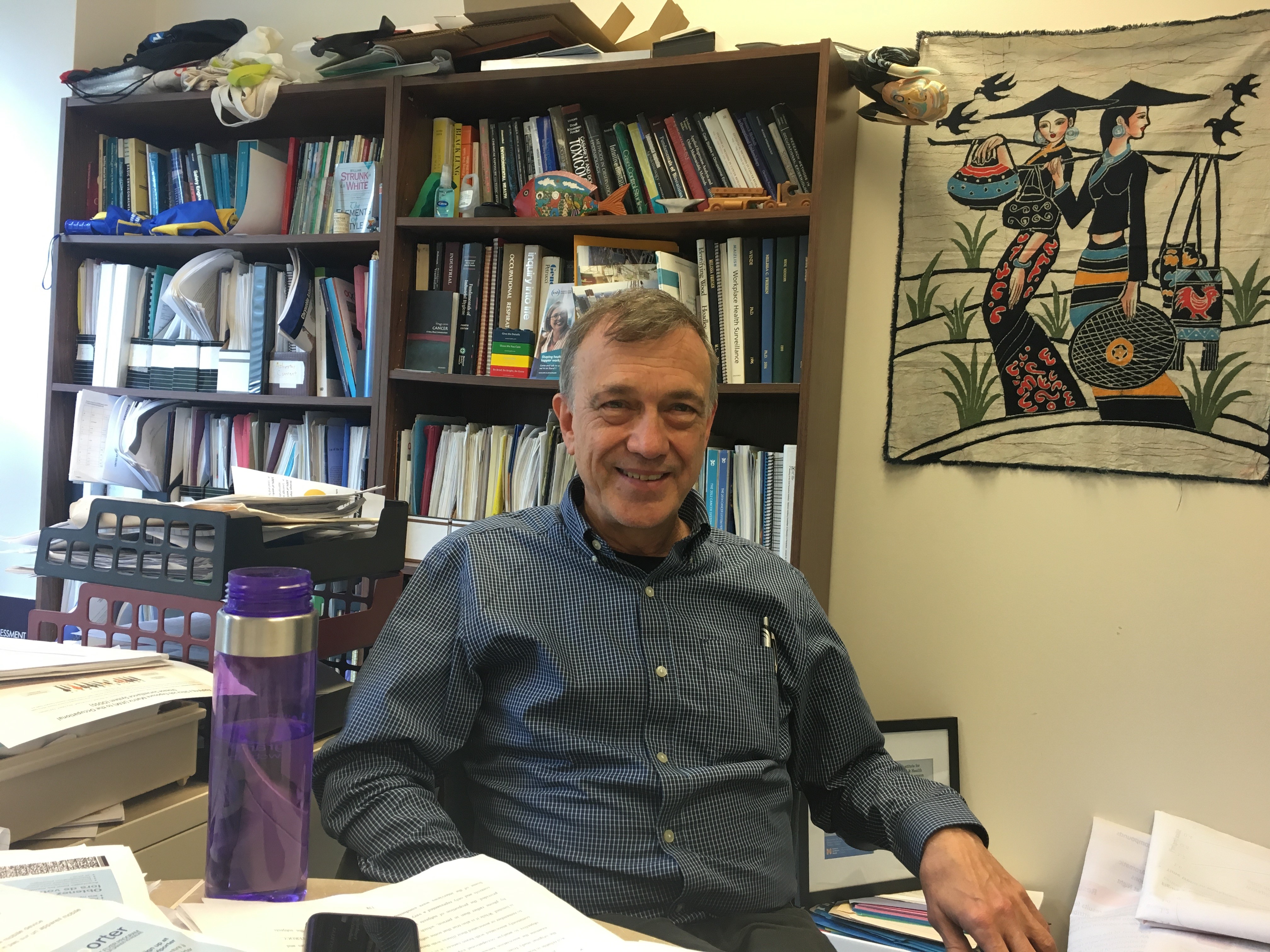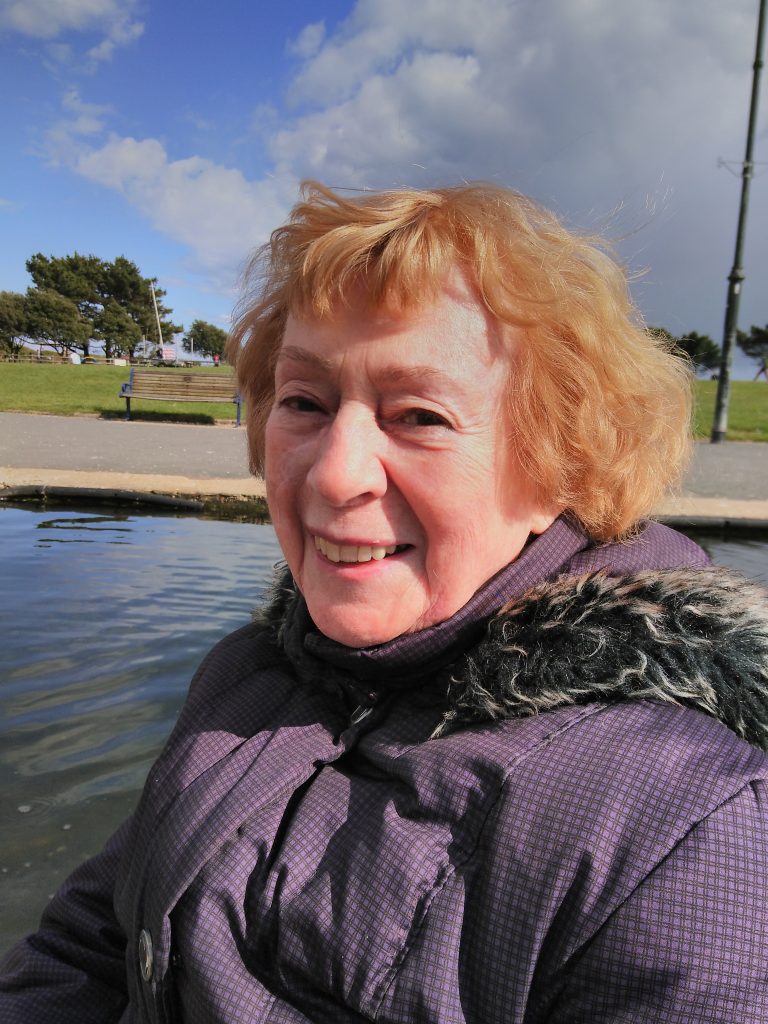The Ontario Health Study Newsletter, June 2019
Jun 17, 2019 // OHS Newsletter

In this issue:
New questionnaire now available – We want to know your work story!
The work we do can have a big impact on our physical, mental and emotional health. That’s why we created the OHS Work History Questionnaire to allow researchers to further investigate the link between work and health. It is now available to complete!
The questionnaire asks many things about the jobs you’ve had in your life, including where you worked, the tasks you performed, how you got to work, whether you did shift work, and other risk factors you may have been exposed to.
Data collected by the Work History Questionnaire are useful to researchers across many disciplines. OHS Executive Scientific Director Dr. Philip Awadalla says:
“Because this is a population cohort and not a clinical cohort, it allows us to capture information and data that many different types of researchers can potentially use that would be very interesting to answer – questions around why people develop disease, diabetes, cardiovascular diseases, something in the brain space – we can break down a number of those health domain silos and answer those questions in a pluralistic manner.”
You may not be able to recall every job you’ve had, but the more you are able to provide, the stronger the available data becomes. You may want to refer to a copy of your résumé to be able to quickly access information about the location and duration of the job, as well as the duties performed. As always, your progress is saved as you go, so you don’t need to complete the whole questionnaire in one sitting.
In just two months, thousands of participants have already told us their work story. Every participant has valuable information to provide – you don’t need to be currently employed to make an important contribution to heath research by logging into your account and clicking the red banner to get started!
|
|
I’m retired, should I still take part?Absolutely! Every job or position you’ve held has contributed in some way to your overall health. Some health changes take a long time to develop, so sharing your work history could help researchers discover hidden patterns or new disease markers. |
|
Additional Reading:
Want to know more about how your work life and health are connected? Here’s some interesting stories we liked. Follow the OHS on Facebook for updates and other interesting work-related news and research.
- When you have to do shift work – Counteracting the negative impacts of working against your body’s internal clock (audio)
- How many jobs do Canadians hold in a lifetime?
- Standing or sitting – which is best? (video)
- Women more likely to leave work to care for elders
Your work story could help fill a knowledge gap
 |
| Dr. Paul Demers |
Completing the Work History questionnaire could help fill a knowledge gap for health researchers, according to a leading expert in occupational cancer research.
“Sometimes it’s the jobs we held long ago that are the most important,” said Dr. Paul Demers, Director of the Occupational Cancer Research Centre at Cancer Care Ontario, and one of the scientists OHS consulted about the importance of work history.
“The diseases that are hardest to study are the ones that develop after a long period of time. So we have to go far back, and that’s what the questionnaire is designed for.”
The OHS Work History Questionnaire asks you to tell us about every job you’ve had in your work life. Maybe you were a painter, a welder or did the night shift two or 20 years ago, and only recently noticed a health change.
“We would be able to look at the patterns – and ask ‘is that group of people who did night shifts at higher risk (of disease) than people who didn’t do night shifts?’”
Demers knows a lot about occupational disease and work-related cancers. He oversees the Occupational Disease Surveillance System, set up two years ago to follow 2.2 million injured workers in order to track their risk for developing disease.
“In some ways it’s similar to what the OHS has, except we don’t have a lot of details about where people worked and how their job might have changed over time,” said Demers.
“So our Surveillance System is useful, but the excitement about having the OHS is that, eventually, it will be much more deep in terms of how much we know about what people do at work, and being able to look at how what they do at work affects their lives over time.”
He thinks the data that could result if every one of the 225,000 OHS participants completed the Work History questionnaire could generate the evidence researchers need to help change policies to help prevent disease before it happens.
“There is the potential for the data being collected (by OHS) to fill lots of knowledge gaps.”
OHS data are now part of a global cancer collaboration
When the first volunteer signed up for the Ontario Health Study (OHS) in 2009, carefully filling out a detailed online health questionnaire, she no doubt hoped her efforts would do some good.
She could never have predicted that, 10 years on, her de-identified health data is now pooled with those of nine million other altruists, from across four continents.
The 225,000 OHS participants are now part of a global cancer data consortium, one that has enormous potential to investigate the origins and causes of rare and less-studied cancers. The National Cancer Institute Cohort Consortium brings together the datasets and biosamples of 58 large health studies from 20 countries.
The pooling of these already-large data sets is a gift to cancer researchers. It offers opportunity to tease out new associations and patterns, and to assess risks from uncommon exposures to cancers.
It’s big data at its best, explains John McLaughlin, a professor of epidemiology at the University of Toronto, and the very first Principal Investigator for the Ontario Health Study. Cancer collaborators can accomplish more, faster, and at lower costs than they could ever undertake looking only at their own national data set.
“And it allows Canada to work with the best centres in the world,” says McLaughlin, who is also the Executive Director of the Canadian Partnership for Tomorrow Project (CPTP), a research platform composed of data and samples from the OHS and five other regional population studies.
McLaughlin projects back to that early OHS participant dutifully tapping out her health history, and marvels.
“For her, it doesn’t seem like cutting edge – ‘you’re asking me for the obvious’. But when it scales up, to a collaboration involving millions of participants, it really is at the cutting edge of science.”

What made you participate in the OHS?
Here’s what Patricia from Toronto had to say:
“I joined the Ontario Health Study and remain in it actively because I believe one should be an active contributor to one's society. Many things, like large donations or very serious amounts of volunteer time, would be difficult for me; this is easy and will have a good effect.”
We love hearing from you. As an OHS participant, why will you take the Work History questionnaire? Email us at info@ontariohealthstudy.ca
Participants make OHS research possible
What if there was no Ontario Health Study? In this video, OHS researchers talk about the value of the data and biosamples collected from our 225,000 volunteer participants over the last 10 years. Featuring:
- Philip Awadalla, OHS Executive Scientific Director
- John McLaughlin, OHS Founding Director (2007-2010)
- Victoria Kirsh, Current OHS Researcher

